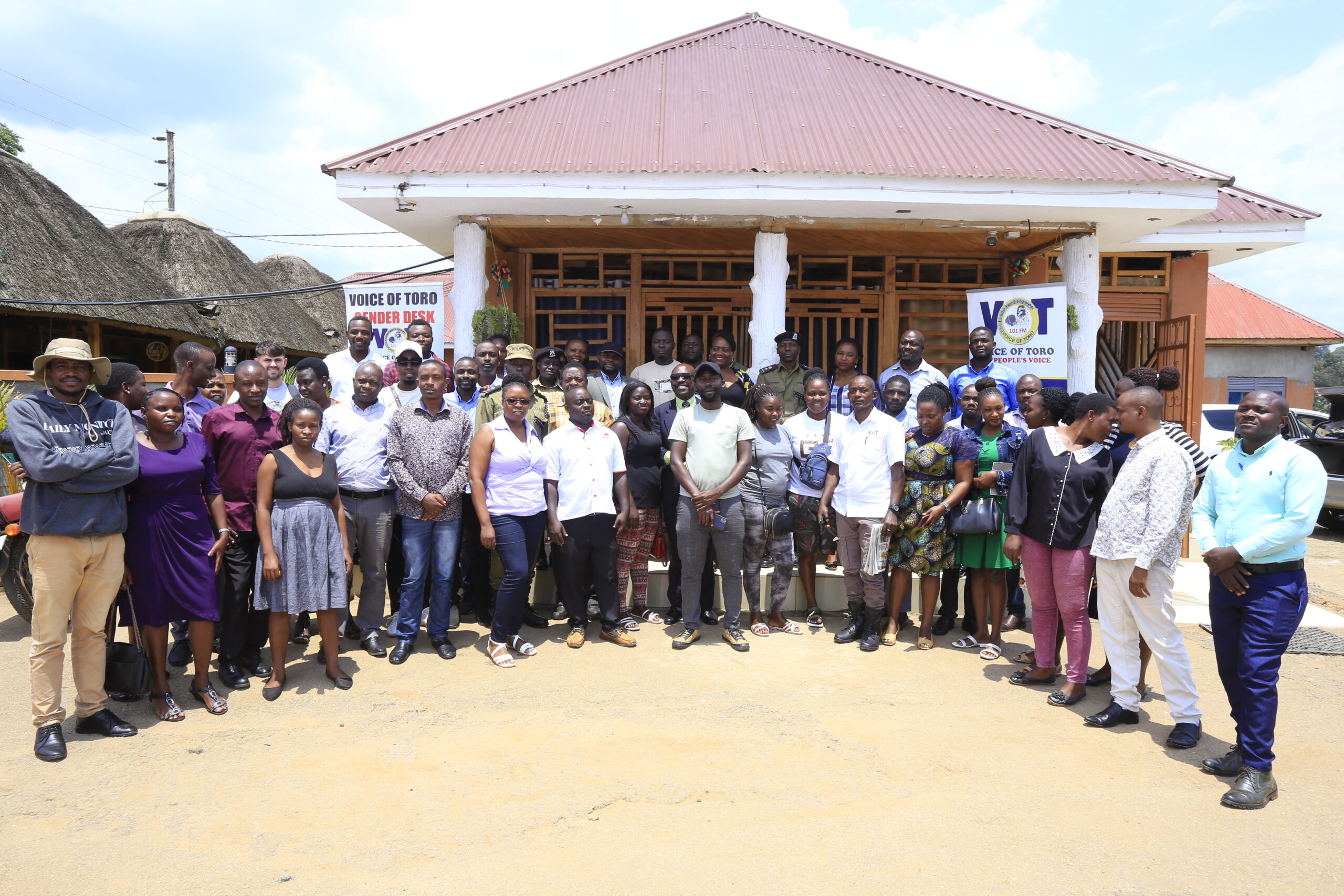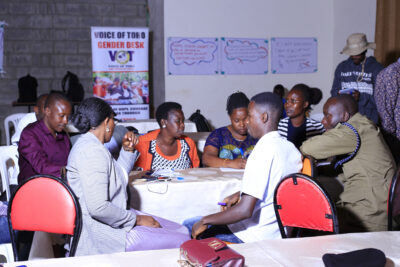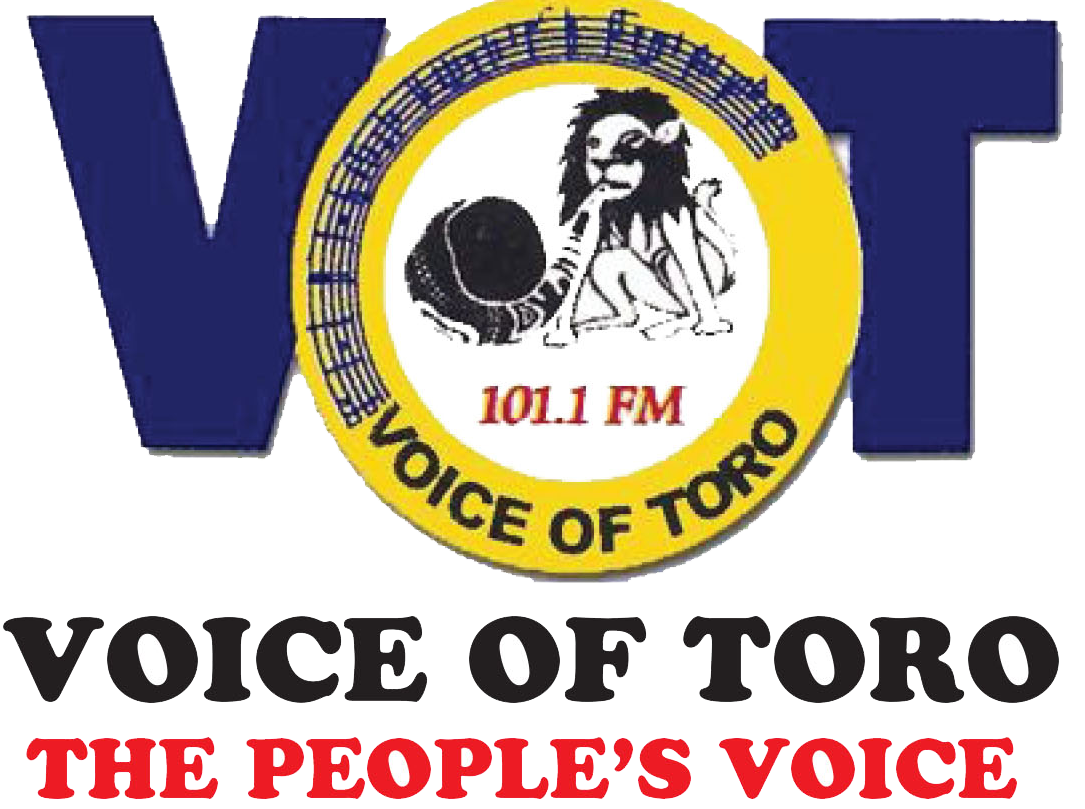
Voice of Toro Gender Desk: Empowering Journalists, Artists, and Influencers for Gender Equality and Mental Health
BY: HOPE LEONTINA.
The Voice Of Toro Gender Desk in Fort Portal City on Tuesday conducted training with journalists, police officers, artists, and social media influencers aimed at harnessing the influence of media to promote gender equality and combat mental health stigma.
The event, organized by the VOT Gender Desk, brought together 50 participants.
Ms Betty Mujungu, the team leader of Voice Of Toro Gender Desk said media, and artists play through content creation in shaping narratives that uphold gender equality.
She said advancing gender equality initiatives is not an anti-male campaign but its efforts are to address challenges that affect both genders, albeit disproportionately impacting women.
“During the training, we aim to create an open space where every participant can learn from one another. Mental health issues, in particular, have not been given the space they deserve in the media, and when they are reported, the narratives often stigmatize the very people they aim to help. We are appealing to journalists to give mental health stories the attention they need, ensuring they are told in a way that is sensitive and stigma-free,”
Ms Katusiime Agatha, Assistant Resident City Commissioner for Central Division, Fort Portal, commended the VOT Gender Desk for spearheading initiatives that challenge negative cultural norms and promote inclusivity.
Ms Agatha called upon media practitioners to create content that fosters respect and inclusivity within the community.
The training provided an open forum for participants to share insights and learn from each other’s experiences. Discussions centered on integrating gender-sensitive perspectives into media content and addressing the underreported issue of mental health stigma in media spaces.
Mr. Denis Baguma, a psychologist from the Fort Health Mind Initiative, said that mental health issues affect individuals regardless of gender, qualifications, or social standing.
“Mental illness does not discriminate; it can impact anyone,”
Mr Baguma said the reports in the media often focus on extreme cases, such as violent acts committed by those suffering from mental health issues.
He urged journalists to approach mental health reporting with sensitivity and depth, saying they need to cover a broader range of stories beyond the sensationalized cases.
He appealed to journalists to debunk myths about mental health that many people have common misconceptions with beliefs that mental illness is caused by witchcraft, weakness in the brain, hereditary factors, drug abuse, or even excessive studying.
Musa Polite, a participant who represented his group during the discussion said there are many misunderstandings surrounding mental health counseling as many people say that counseling is often viewed as a luxury for the rich or the literate, or something reserved solely for people diagnosed with HIV/AIDS.
Other myths included the perception that counseling is a waste of time, available only in hospitals, or simply advice-giving, which can be done by friends or relatives. Mr. Jimmy points out that mental health remains largely neglected in Uganda’s national budgeting, receiving as little as 0.1 percent of the national budget.
“Many people suffer in silence, choosing not to disclose their struggles to colleagues or supervisors, and few seek professional counseling early enough,” Mr Jimmy said. He highlights that mental health issues encompass three main aspects: thinking, feeling, and action.
Ms Clinius Ayebare a Gender Studies Lecturer at The Uganda Pentecostal University Fort portal urged media professionals to take an active role in combating harmful gender stereotypes and promoting positive masculinity.
“It’s important to model gender equality at home, allowing children to engage in all activities without labeling them as ‘male’ or ‘female’ roles,” she explained. Home is a fundamental environment for promoting gender equality,” Ms Ayebare said.
Ms. Agnes Angom, head of the Child and Family Protection Unit in Fort Portal City, said that many men feel ashamed to seek help, despite also having the legal right to report abuse.
Ms Angom encouraged participants to support men who might be reluctant to come forward.
Ms. Getruda Kabagenda, from Kogere Cultural Foundation, shared her personal experience as a Gender-Based Violence (GBV) survivor saying as people working within the cultural set-up, they are using culture to promote gender equality, saying,
“I am a GBV survivor, and I am empowered, but people have negative perceptions about culture. We need to use culture for development and embrace good cultural practices that advance gender equality.”
Ms. Carol K, an artist, commended the timeliness of the training and pledged to use her platform to advance gender equality. She also called for financial support to produce songs that raise awareness in the community.
“As artists and producers, we pledge to do the needful to advance gender equality, but we also ask for financial support to produce more songs that can change our community,” she said.
Additionally, she committed to using her social media platforms to share content on mental health and gender equality.

Participants actively engaging in a group discussion during the training


